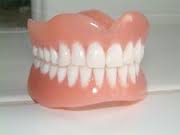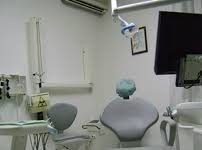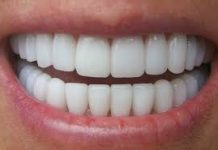False teeth implants.
Dentures are removable false teeth made of acrylic (plastic), nylon or metal. They fit snugly over the gums to replace missing teeth and eliminate potential problems caused by gaps.
Gaps left by missing teeth can cause problems with eating and speech, and teeth either side of the gap may grow into the space at an angle. Sometimes, all the teeth need to be removed and replaced.
You may therefore need either:
complete dentures (a full set) which replace all your upper or lower teeth, or
partial dentures which replace just one tooth or a few missing teeth
Dentures can help to prevent problems with eating and speech and, if you need complete dentures, they can also improve the appearance of your smile and give you confidence.
Mobile false teeth. How dentures are fitted.
A full denture will be fitted if all your upper or lower teeth need to be removed or you’re having an old complete denture replaced. The denture will usually be fitted as soon as your teeth are removed, which means you won’t be without teeth. The denture will fit snugly over your gums and jawbone. You can either see a dentist or a qualified clinical dental technician to have your dentures made and fitted.
A dentis will take measurements and impressions (moulds) of your mouth, and then order your full or partial dentures from a dental technician.
Dentures.
A clinical dental technician will provide a full set of dentures directly without you having to see your dentist (although you should still have regular dental check-ups with your dentist).
A partial denture is designed to fill in the gaps left by one or more missing teeth. It’s a plastic, nylon or metal plate with a number of false teeth attached to it. It usually clips onto some of your natural teeth via metal clasps, which hold it securely in place in your mouth. It can easily be unclipped and removed.
Your dentist can measure your mouth and order a partial denture for you, or you can see a qualified clinical dental technician, who can provide a partial denture for you directly after you’ve first seen your dentist for a treatment plan and certificate of oral health.
It’s important to regularly remove plaque and food deposits from your dentures, because unclean dentures can also lead to problems, such as bad breath, gum disease, tooth decay and oral thrush. Clean your dentures as often as you would normal teeth (at least twice a day every morning and night).
False teeth. You should:
brush your dentures with toothpaste or soap and water before soaking them to remove food particles
soak them in a fizzy solution of denture-cleaning tablets to remove stains and bacteria (follow the manufacturer’s instructions)
brush them again, as you would your normal teeth (but don’t scrub them too hard)
Dentures may break if you drop them, so you should clean them over a bowl or sink filled with water, or something soft such as a folded towel.
If your dentures fit properly, you shouldn’t necessarily need to use denture fixative (adhesive). However, if your jawbone has shrunk significantly, adhesive may be the only way to help retain your dentures. Your dentist or clinical dental technician will advise you if this is the case.
You should continue to see your dentist regularly if you have dentures (even if you have complete dentures) so they can check for any problems.
Your dentures should last several years if you take good care of them. However, your gums and jawbone will eventually shrink, which means the dentures may not fit as well as they used to and can become loose, or they may become worn.





